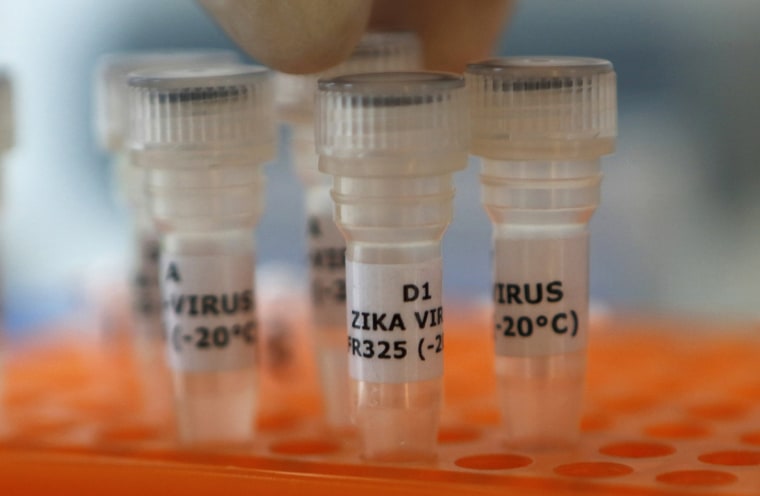A woman infected with Zika carried the virus in her vagina for weeks, researchers reported Tuesday.
It’s yet more evidence that the virus can hang out in the human body for weeks or months after symptoms have cleared up. The findings, rushed online by the journal Emerging Infectious Diseases, also add to evidence the virus might be commonly transmitted sexually.
That, in turn, helps explain Zika's rapid spread. Mosquitoes that carry the virus don't go more than a few hundred yards in their lives. People travel much further.

Dr. Kristy Murray, assistant dean of the National School of Tropical Medicine at Baylor College of Medicine in Houston and colleagues tested a woman infected with Zika while visiting Honduras.
“A previously healthy, nonpregnant, 26 year-old non-Hispanic white woman returned to the United States from Tegucigalpa, Honduras, during mid-May 2016,” they wrote.
“Five days after her return, signs and symptoms consistent with Zika virus infection developed, beginning with rash and subsequent fever, headache, and conjunctivitis.”
Her symptoms continued for more than two weeks, including peeling of the palms of her hands and soles of her feet.
"These findings advance understanding of Zika virus infection and provide data for additional testing strategies."
Because the patient showed up right away, Murray’s team was able to run a battery of tests from day one to see just what they could find out about Zika.
Usually blood tests use serum, not whole blood, but the team only found Zika in serum for eight days. In whole blood, however, pieces of its RNA genetic material persisted for nearly three months.
They found genetic bits of Zika virus in her blood for 81 days after symptoms started, in her saliva for eight days and in her vagina for 14 days.
Related: Any Kind of Sex Can Spread Zika
“With the recent finding of possible female-to-male virus transmission, infectious virus might be present in the vaginal canal and could serve as a risk for sexual or intrapartum (during birth) transmission,” the team concluded.
Zika is known to infect people sexually. It can stay in a man's semen for months and many people who never went near a Zika zone have been infected by sex partners who traveled to one.
Related: Zika's Mysteries Stump Even the Experts
Other teams have found that Zika can live and replicate in the vagina.
Zika virus has exploded across the Americas, carried mostly by mosquitoes but also by person-to-person contact. Most people don't even get sick, but there is a huge risk to unborn babies.
Zika’s cause at least three outbreaks in the Miami area. Florida now has 179 home-grown cases of Zika, presumably spread by the Aedes mosquitoes that are common in the state.
Related: New Zika Zone Found in Miami
Florida has counted more than 1,030 cases of Zika in total – most of them in travelers to other Zika-affected areas or their sex partners. The health department says 109 of the cases involve pregnant women.
"We detected viral shedding in vaginal secretions up to day 14."
The virus can cause severe birth defects if a pregnant woman gets infected -- all the way from extreme brain damage to subtler defects that experts say may not show up until a child starts to grow older.
The Centers for Disease Control and Prevention and the World Health Organization both say pregnant women need to avoid getting infected through sex, and caution men who have even a chance of having had Zika to use a condom throughout a sex partner's pregnancy.
"Men and women who want to reduce the risk for sexual transmission of Zika virus should use barrier methods against infection consistently and correctly during sex or abstain from sex when one sex partner has traveled to or lives in an area with active Zika virus transmission,” the CDC advises.
Other, similar viruses can infect babies at birth. Chikungunya, a cousin of Zika, in rare cases infected babies at birth. More notorious is HIV, the AIDS virus, which often infects newborns if the mother doesn't take HIV drugs.

